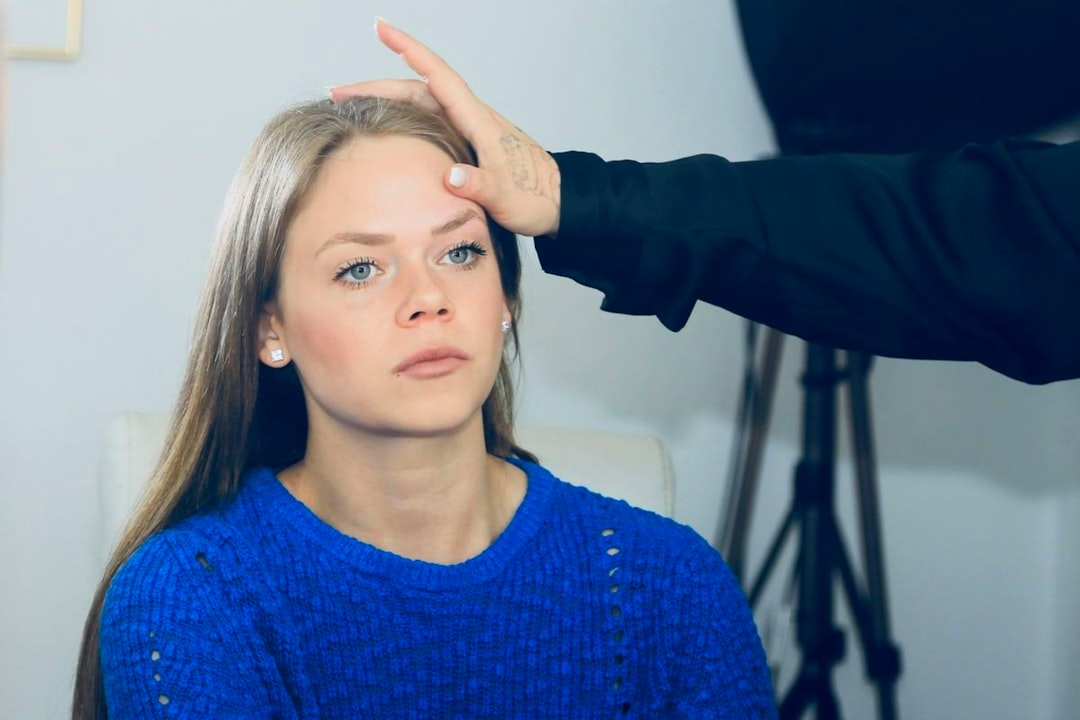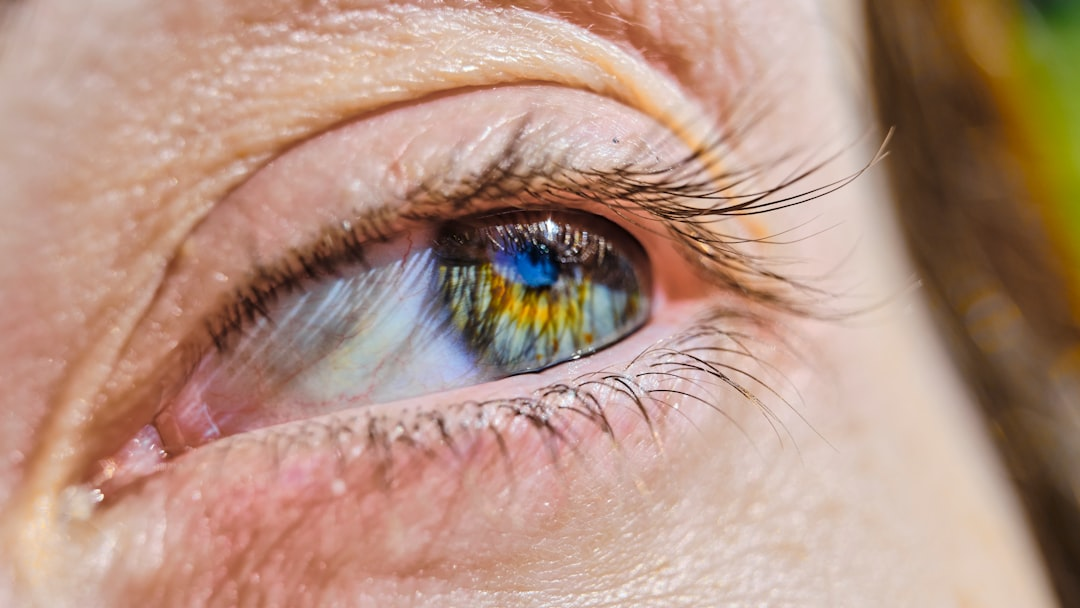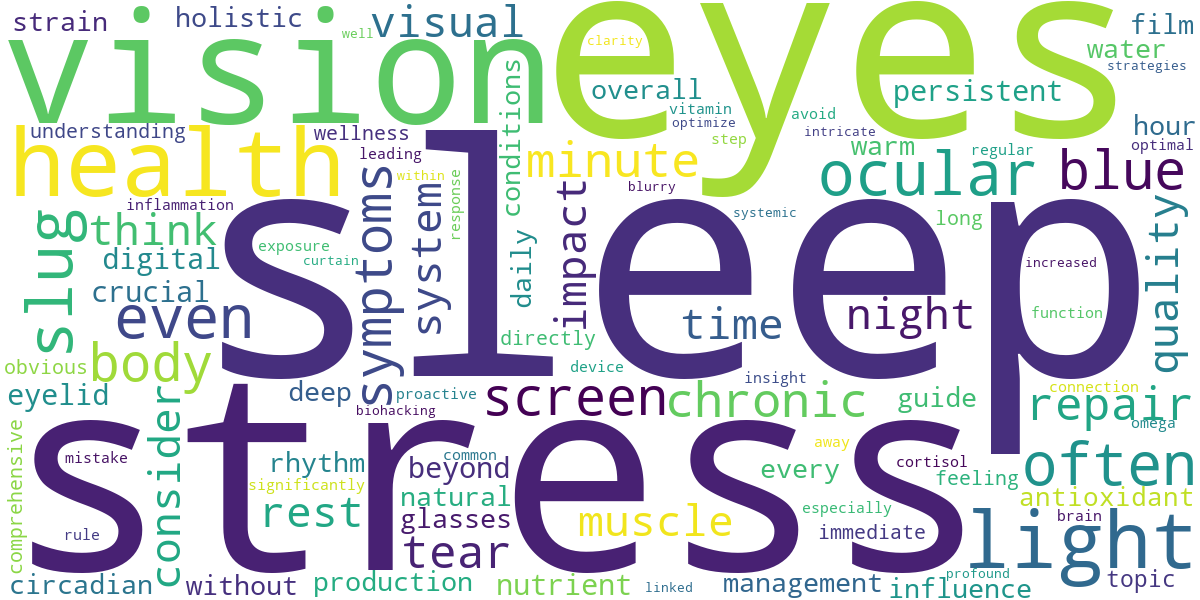
What if the blurry vision you experience, the persistent dry eyes, or even the subtle strain isn’t just about screen time or genetics, but intimately linked to the quality of your sleep and the weight of your daily stress? We often compartmentalize our health, treating symptoms in isolation, yet our body is an intricate, interconnected system.
Our Top Recommendations
Renew
Renew is a game-changing supplement designed to rejuvenate your body from the inside out, boosting energy and restoring youthful vitality. Experience a profound sense of renewal.
For a complete overview of this topic, refer to our main guide on Biohacking Vision: The Ultimate Guide to Eye Health & Clarity.
This definitive guide will pull back the curtain on the profound, often overlooked relationship between your sleep patterns, stress levels, and the very health of your eyes. Prepare to gain a transformative understanding that empowers you to safeguard your vision not just through external remedies, but by nurturing your overall well-being from within.
💡 Key Takeaways
- Unveiling the Link: Discover the direct, often surprising ways insufficient sleep and chronic stress manifest as ocular symptoms, from blurred vision to increased sensitivity.
- Beyond the Obvious: Understand how systemic stress responses and disrupted sleep cycles directly impact eye physiology, affecting tear production, intraocular pressure, and optic nerve health.
- Holistic Eye Wellness: Learn actionable strategies and lifestyle adjustments that integrate sleep hygiene and stress management techniques into a comprehensive approach to optimize long-term eye health.
In This Article
😴 Sleep’s Influence on Vision

Your eyes, those incredible, intricate biological cameras, work tirelessly from the moment you open them until you close them again. But like any high-performance instrument, they demand critical downtime for repair and rejuvenation. That downtime? It’s called sleep. And the profound impact of your sleep quality on your visual health is often underestimated.
Think of your eyes as miniature, high-definition camera lenses that operate continuously. Just as a physical lens needs cleaning and maintenance to perform optimally, your eyes need a period of absolute rest to reset. When you’re sleep-deprived, the very first thing you’ll notice are symptoms that feel eerily similar to running an engine on fumes.
😴 The Immediate Repercussions of Restless Nights
A single night of poor sleep can manifest visually almost instantly. You might wake up feeling like you have sand in your eyes. This isn’t just a feeling; it’s often a tangible reality. During sleep, your eyes produce tears, but more importantly, your blink rate decreases significantly, allowing for less evaporation and a more stable tear film. When you shortchange your sleep, your eyes are effectively dehydrated, leading to classic dry eye symptoms like redness, irritation, and a persistent gritty sensation. Furthermore, the muscles responsible for focusing and eye movement don’t get sufficient rest, leading to fatigue and reduced visual acuity. It’s like trying to perfectly focus a camera lens when your hands are shaking.
This fatigue isn’t just about feeling tired; it directly impacts how your eyes process information. Studies, such as those examining the prevalence of eye and visual symptoms among office workers, highlight how prolonged visual tasks combined with insufficient rest can exacerbate symptoms like blurred vision, double vision, and headaches. Your visual reaction time can slow, and your ability to track moving objects or maintain focus on a single point diminishes noticeably.
⚠️Common Mistake to Avoid
A common mistake people make is powering through the day on minimal sleep, relying on caffeine to keep them awake. While coffee might boost your energy, it does absolutely nothing to compensate for the ocular repair that only happens during true sleep, often dehydrating you further and worsening dry eye symptoms. You’re simply pushing your eyes to work harder when they desperately need rest.
✨ Deep Sleep: Your Eyes’ Nightly Spa Treatment
Beyond immediate discomfort, deep sleep offers profound restorative benefits for your eyes at a cellular level. During these crucial hours, your body initiates a complex repair sequence. This is when your ocular tissues, from the cornea to the retina, undergo significant cellular regeneration and repair. Think of it as a nightly deep clean and tune-up for every component. Waste products, accumulated from a day of constant light exposure and visual processing, are cleared out. Important proteins and enzymes are synthesized. It’s also during sleep that your eyes receive a fresh supply of nutrients, delivered via increased blood flow to the ocular tissues.
💎Non-Obvious Insight
Did you know that during REM sleep, your eyes actually move rapidly and erratically, despite your eyelids being closed? While the exact purpose is still debated, some theories suggest these movements play a role in processing visual information from the day, stabilizing neural circuits, and even aiding in the development of vision in younger individuals. It’s a truly active process, even in slumber.
🌙 Optimize Your Sleep for Optimal Vision
So, what can you do to harness the power of sleep for better eye health? It boils down to establishing a robust sleep hygiene routine, just as you would for overall health and cognitive function.
- ✅ Consistency is King: Go to bed and wake up at roughly the same time every day, even on weekends. This regular rhythm syncs your circadian clock, which in turn regulates hormone production crucial for sleep and repair.
- ✅ Create a Sanctuary: Your bedroom should be dark, quiet, and cool. Use blackout curtains (like those from IKEA’s line or even basic Amazon basics) to eliminate ambient light. Consider a white noise machine or earplugs if needed.
- ✅ Dim the Screens: Aim to disconnect from digital screens (smartphones, tablets, computers, TVs) at least 60-90 minutes before bed. The blue light emitted by these devices suppresses melatonin production, which is your body’s natural signal for sleep. If you absolutely must use screens, employ blue light filtering glasses (e.g., Zenni Optical’s Blokz or DIFF Eyewear) or activate night mode/Night Shift on your devices.
- ✅ Wind Down Naturally: Engage in relaxing activities before bed: reading a physical book, taking a warm bath, listening to calming music, or practicing light stretching or meditation. Avoid intense workouts, heavy meals, or stimulating conversations close to bedtime.
💡Pro Tip
For an immediate boost to your ocular comfort after a long day of screen use, consider incorporating a warm compress (like a heated eye mask) into your pre-sleep routine. This can help stimulate oil glands (Meibomian glands) in your eyelids, improving the quality of your tear film and reducing dry eye symptoms overnight. Follow it up with a gentle eyelid massage.
Prioritizing quality sleep isn’t just about feeling rested; it’s a non-negotiable pillar of optimal eye health. Give your eyes the restorative rest they deserve, and you’ll be amazed at the clarity, comfort, and vitality they return to you.
🤯 Stress and Ocular Health

You’ve likely felt the physical toll of stress: that knot in your stomach, the tension in your shoulders. But have you ever considered its insidious impact on your eyes? This isn’t just about “tired eyes” after a long day; chronic stress can fundamentally alter your ocular health, often without you realizing it until it’s a persistent problem.
Think of your body’s stress response, the classic “fight or flight” mechanism, as a highly sophisticated, yet often overactive, internal alarm system. When activated, your sympathetic nervous system kicks into overdrive, prioritizing immediate survival functions. While crucial for escaping a saber-toothed tiger, this response in modern, chronic stress scenarios diverts resources from non-essential functions – and unfortunately, optimal eye health often falls into that category.
What does this mean for your vision and ocular comfort? For starters, stress can lead to a cascade of physiological changes:
- ✅ Your pupils may dilate more frequently or remain dilated, letting in more light and potentially causing light sensitivity.
- ✅ Blood flow patterns shift. While your brain and large muscles get prioritized, the delicate structures of your eyes might experience reduced microcirculation, impacting nutrient and oxygen delivery.
- ✅ The production and quality of your tears can be significantly affected. Chronic stress is a known exacerbator of Dry Eye Disease, leading to discomfort, redness, and a gritty sensation. Imagine your eyes constantly working with less lubrication, like an engine running on low oil.
- ✅ Increased muscle tension, often a hallmark of stress, doesn’t spare your eyes. The tiny muscles responsible for focusing (ciliary muscles) and moving your eyes can become tense, leading to eye strain, blurry vision, or even persistent twitching (myokymia) of your eyelids.
💎Non-Obvious Insight
Chronic psychological stress elevates cortisol levels, which in turn can influence intraocular pressure (IOP) and even alter the delicate fluid balance within the eye, potentially impacting the health of the optic nerve over time.
So, what can you do to shield your precious vision from the relentless assault of modern stress? It’s about proactive management, not just reactive treatment:
- ✅ Strategic Breaks: If you’re tethered to a screen, implement the 20-20-20 rule: Every 20 minutes, look at something 20 feet away for 20 seconds. Better yet, step away completely for 5-10 minutes every hour. Stand up, stretch, grab a glass of water. This isn’t just about eye muscles; it’s about breaking the stress cycle.
- ✅ Mindful Breathing: When stress peaks, your breath often becomes shallow and rapid. Incorporate practices like box breathing (inhale 4, hold 4, exhale 4, hold 4) for just 5 minutes a few times a day. This directly engages your parasympathetic nervous system, signaling safety to your body and eyes.
- ✅ Hydration & Nutrition: Stress can deplete your body’s resources. Ensure you’re drinking plenty of water throughout the day. While not a direct stressbuster, consuming foods rich in Omega-3 fatty acids (salmon, flax seeds) and antioxidants (leafy greens, berries) supports overall eye health, making them more resilient to stress-induced inflammation.
- ✅ Digital Detox Mini-Breaks: Consider setting a “no screens an hour before bed” rule. The blue light and mental stimulation from devices keep your brain wired, disrupting sleep, which then amplifies stress and its ocular effects.
💡Pro Tip
Implement a daily 10-15 minute “eye meditation.” Close your eyes, place warm palms over them (palming), and focus purely on your breath. This simple act reduces ocular tension and encourages deep relaxation, allowing your eyes to recover and your nervous system to downregulate.
The key takeaway is this: your eyes are not isolated organs. They are intricately connected to your overall physiological and psychological state. By becoming an expert in managing your stress, you’re not just improving your mental well-being; you’re actively safeguarding one of your most vital senses.
⚠️Common Mistake to Avoid
Many people overlook the subtle symptoms of stress-related eye issues, dismissing them as mere fatigue. Ignoring persistent dry eyes, blurry vision that comes and goes, or frequent eye twitching can allow temporary discomfort to progress into chronic conditions. Listen to your body – especially your eyes – as they often provide early warnings.
🌱 Holistic Strategies & Eye Wellness

Understanding the intricate dance between your eyes, your internal state, and your environment is the first step. But awareness without action is merely information. This section isn’t just about understanding; it’s your actionable playbook for cultivating truly robust eye health from the inside out.
🥗 Fueling Vision: Nutrition as Your Foundation
Think of your eyes not just as organs of sight, but as incredibly active metabolic powerhouses. They demand specific nutrients to function optimally and ward off oxidative damage. You wouldn’t put diesel in a gasoline engine, right? So why would you expect peak performance from your eyes without giving them the right fuel?
- ✅ Lutein & Zeaxanthin: The Internal Sunglasses. These potent carotenoids are concentrated in your macula, acting like natural blue light filters and antioxidants. You’ll find them abundantly in dark, leafy greens like spinach, kale, and collard greens, as well as in vibrant bell peppers, corn, and even egg yolks. Aim for a generous serving daily.
- ✅ Omega-3 Fatty Acids: The Lubricators. Specifically EPA and DHA, these are crucial for maintaining a healthy tear film and reducing inflammation. Without adequate omega-3s, your eyes can feel gritty and dry, like a squeaky hinge. Incorporate fatty fish such as wild-caught salmon, mackerel, and sardines a few times a week, or consider a high-quality fish oil supplement like Nordic Naturals or Carlson Labs.
- ✅ Vitamins A, C, & E: The Antioxidant Army. Vitamin A is fundamental for good vision, especially in low light. Vitamins C and E are powerful antioxidants that protect your eye cells from free radical damage. Think of citrus fruits, berries, nuts, seeds, and colorful vegetables as your daily dose of protective armor.
💡Pro Tip
When taking fat-soluble vitamins like A and E, or omega-3s, always consume them with a meal that contains healthy fats (e.g., avocado, nuts, olive oil) to significantly boost their absorption into your system.
💡 The Light Paradox: Harnessing & Protecting Your Vision
Light is essential for sight, but not all light is created equal, and timing is everything. Just as too much sun can harm your skin, improper light exposure can stress your eyes and disrupt your entire system.
- ✅ Embrace Morning Sunlight. Getting natural, bright light exposure first thing in the morning, ideally within an hour of waking, sets your circadian rhythm. This isn’t just about sleep; it influences dopamine release, which is crucial for healthy eye development and preventing myopia, particularly in children. Step outside for 10-15 minutes without sunglasses, letting the light hit your retinas.
- ✅ Strategically Manage Digital Blue Light. While blue light isn’t inherently evil, chronic overexposure from screens, especially at night, can be problematic. This is where tools come in. Utilize software like f.lux or your device’s built-in Night Shift/Night Light feature to automatically reduce blue light emissions in the evening. Consider blue-light blocking glasses for prolonged screen use, especially after sunset. Brands like Felix Gray or Swanwick offer various styles.
- ✅ The 20-20-20 Rule. For every 20 minutes you spend on a screen, look away at something 20 feet away for at least 20 seconds. This simple act allows your eye muscles to relax and refocus, preventing digital eye strain. Set a timer on your phone – it’s that easy and incredibly effective.
⚠️Common Mistake to Avoid
Many people rely solely on blue-light filtering apps or glasses for eye protection, overlooking the critical role of morning natural light exposure and regular breaks. Both are vital for comprehensive eye health and circadian rhythm regulation.
🧘♀️ The Inner Sanctuary: Stress, Sleep & Eye Resilience
Your eyes don’t exist in a vacuum. They are intricately linked to your body’s overall physiological state, particularly your stress response and sleep cycles. Neglecting these areas is akin to running a race with one hand tied behind your back – you’re simply not optimizing your full potential for eye health. Research presented at scientific gatherings like the ARVO Annual Meeting consistently highlights the systemic connections impacting ocular health.
- ✅ De-Stress Your Vision. Chronic stress elevates cortisol, which can contribute to inflammation throughout the body, including your eyes. Practices like diaphragmatic breathing (slow, deep belly breaths), mindfulness meditation (even just 5-10 minutes daily using apps like Headspace or Calm), and regular moderate exercise can significantly lower your stress load. Think of stress as a cloud obscuring your vision; clearing it allows for greater clarity, both literally and figuratively.
- ✅ Prioritize Ocular Repair Through Sleep. Sleep is when your entire body, including your eyes, enters a crucial repair and regeneration phase. Melatonin, the hormone of darkness, isn’t just for sleep; it’s a powerful antioxidant that helps protect your retinal cells. Aim for 7-9 hours of quality, uninterrupted sleep nightly.
- ✅ Optimize Your Sleep Environment. Create a pitch-black room (blackout curtains are your best friend) to maximize melatonin production. Keep the temperature cool (around 65°F or 18°C) and ensure consistent sleep and wake times, even on weekends. Your eyes will thank you for the consistent opportunity to rest and repair.
💎Non-Obvious Insight
The connection between gut health and eye health is increasingly recognized. A diverse gut microbiome influences systemic inflammation and nutrient absorption, both of which directly impact ocular integrity and can mitigate conditions like dry eye syndrome. Consider incorporating fermented foods like kimchi, sauerkraut, and kefir into your diet.
💧 The Wellspring of Sight: Hydration & Proactive Care
While often overlooked, fundamental habits form the bedrock of long-term eye wellness.
- ✅ Hydrate Diligently. Your tear film, which lubricates and protects your eyes, is largely composed of water. Dehydration, even mild, can lead to dry, irritated eyes. Make conscious efforts to drink enough water throughout the day. A good rule of thumb is to sip water consistently rather than chugging large amounts sporadically.
- ✅ Regular Professional Eye Exams. Even if your vision seems perfect, comprehensive eye exams are vital. They can detect early signs of conditions like glaucoma, cataracts, and diabetic retinopathy before you even notice symptoms. Think of it as a proactive wellness check, not just a reaction to a problem. Schedule them annually or as recommended by your eye care professional.
💡Pro Tip
For persistent dry eye, beyond general hydration, consider incorporating a warm compress routine. A simple warm washcloth applied to closed eyelids for 5-10 minutes can help stimulate oil glands and improve tear film stability, providing significant relief.
By recognizing the powerful interplay between sleep, stress, and eye health, you are now equipped to take proactive, holistic steps towards preserving your most precious sense. Embrace these insights to foster not just clearer vision, but a healthier, more balanced life.

Recommended Video
What is the connection between sleep, stress, and eye health?
Sleep and stress are deeply intertwined with overall physiological health, including the health of your eyes, influencing everything from hydration to nerve function.
- Adequate sleep allows for crucial eye repair and rejuvenation, including tear production and waste removal.
- Chronic stress triggers the ‘fight or flight’ response, which can impact blood flow and introduce inflammatory compounds.
- Both sleep deprivation and stress can lead to systemic issues that directly manifest as eye discomfort or vision problems.
- The eyes, being highly sensitive organs, are often one of the first areas to show the physical toll of systemic imbalance.
How do poor sleep and chronic stress specifically affect the eyes?
Poor sleep and chronic stress affect eye health through various physiological mechanisms, from altered tear production to increased inflammation and muscle strain.
- Sleep deprivation reduces tear film stability, leading to dry eyes, irritation, and increased risk of infection.
- Chronic stress can cause eye twitching (myokymia) due to muscle fatigue and nerve overstimulation around the eye.
- Sustained stress elevates cortisol levels, which can impact intraocular pressure and potentially exacerbate conditions like glaucoma over time.
- Lack of restorative sleep hinders the eyes’ ability to repair daily damage, leading to blurry vision, light sensitivity, and eye strain.
- The body’s inflammatory response to stress can contribute to conditions like uveitis or optic neuritis, though less directly.
How can improving sleep and reducing stress protect my eyes?
Prioritizing quality sleep and effective stress management can significantly protect and improve various aspects of eye health by promoting natural restorative processes.
- Sufficient sleep allows for optimal tear production and replenishment, alleviating dry eye symptoms and maintaining surface health.
- Reducing stress helps normalize blood flow to the eyes, ensuring adequate oxygen and nutrient delivery to ocular tissues.
- Improved sleep contributes to better overall immune function, making the eyes less susceptible to infections and inflammatory conditions.
- Managing stress can lessen instances of stress-induced symptoms such as eye twitching or temporary blurry vision.
What specific eye conditions can be exacerbated by sleep deprivation and stress?
Several common eye conditions can be made worse or triggered by inadequate sleep and chronic stress, highlighting the importance of holistic health management.
- Dry Eye Syndrome is significantly worsened by poor sleep quality, as tear production decreases and the eyes don’t get sufficient rest and lubrication.
- Persistent eye twitching (myokymia) is a very common and direct manifestation of stress and fatigue affecting the eyelid muscles.
- Increased stress and sleep deprivation can lead to heightened sensitivity to light (photophobia) and general eye discomfort.
- While not a direct cause, chronic stress and high cortisol levels have been linked to fluctuations in intraocular pressure, potentially impacting glaucoma management.
Are there long-term risks to eye health from chronic stress and poor sleep?
Yes, chronic exposure to high stress and prolonged sleep deprivation can pose long-term risks to eye health, potentially contributing to more serious and persistent ocular issues.
- Sustained inflammation from chronic stress can contribute to the development or progression of age-related eye diseases, such as macular degeneration, by damaging delicate retinal cells.
- Chronic dry eye, a frequent consequence of poor sleep, can lead to corneal abrasions, infections, and permanent surface damage if left unaddressed.
- Long-term elevated intraocular pressure due to stress can potentially accelerate glaucoma progression, leading to irreversible optic nerve damage and vision loss.
- The body’s general weakened state from chronic stress and lack of repair can make the eyes more vulnerable to degenerative changes and reduced visual acuity over time.


